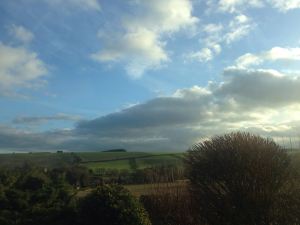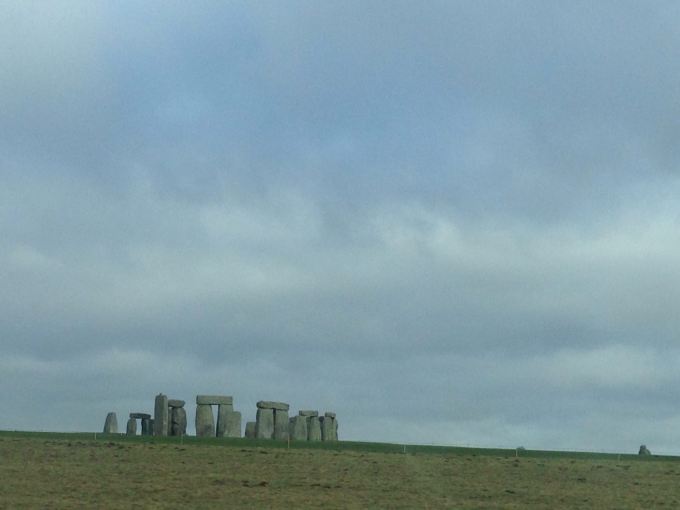 That is the final line of our show, The Lost Tales, and a few weeks ago we performed the show for (perhaps) the final time. So it is high time for a round up of the project- oh, the places we've been!
That is the final line of our show, The Lost Tales, and a few weeks ago we performed the show for (perhaps) the final time. So it is high time for a round up of the project- oh, the places we've been!We are currently knee deep in our Arts Council Evaluation, a process which can, if we're honest, feel a bit like a school assignment. There's a real sense of duty, of trying to get it right and also of being as honest as you can possibly be, for fear of the teachers discovering that you might have stretched the truth a little bit. You need to look back, with slight trepidation, at what you promised, all those months ago in your Arts Council Application, all those 'we will engage this hard to reach audience' and 'we will develop our relationships with these artists' and see how far you drifted from the mark. You have to include facts and figures, weigh the value of your project against audience numbers and website analytics and demographics and, to be frank, it can all feel a little bit bleurgh.
But do you now what? I'm actually having a bloody lovely time. So I'm going to tell you a little bit about this sprawling beast of a project, and I promise you I won't slip into Arts Council Evaluation speak too many times.
What we set out to do
 We wanted to create a performance event that would bring a community together for one night, to laugh, to celebrate the stories that surround them and to be joyously creative. To throw caution to the wind for one night only, in between the village hall announcements pre show and the raffle at the end, and to discover... something about themselves as a community. To leave aside divisions or village politics and to make something anarchic and magical together, that could be talked about and enjoyed for weeks, months or even years to come. So, we created a narrative framework, based around our Story Exchange walkabout characters Martha and Freddie, and created their world a bit- a world where the characters work tirelessly to uncover, share and save the stories of villages from county to county, a rag tag crew of vagabonds, pushing their barrow thanklessly through the night to perform their tasks. Tasks which, to the wider world, seem utterly pointless and ridiculous. Find a story, tell it, and keep a little something of it so that it isn't forgotten again.
We wanted to create a performance event that would bring a community together for one night, to laugh, to celebrate the stories that surround them and to be joyously creative. To throw caution to the wind for one night only, in between the village hall announcements pre show and the raffle at the end, and to discover... something about themselves as a community. To leave aside divisions or village politics and to make something anarchic and magical together, that could be talked about and enjoyed for weeks, months or even years to come. So, we created a narrative framework, based around our Story Exchange walkabout characters Martha and Freddie, and created their world a bit- a world where the characters work tirelessly to uncover, share and save the stories of villages from county to county, a rag tag crew of vagabonds, pushing their barrow thanklessly through the night to perform their tasks. Tasks which, to the wider world, seem utterly pointless and ridiculous. Find a story, tell it, and keep a little something of it so that it isn't forgotten again.We also knew that we wanted to create a story telling show that was GENUINELY relevant to it's audience. I think I had seen a lot of storytelling shows that seem to follow a really predictable pattern and I really didn't want to make that kind of show. It's hard to pinpoint exactly what it is we were avoiding, but I certainly knew that we needed to make something that spoke to audiences NOW. So, not just dredging up dusty old tales from the past, told again and again, in ye olde English dialect. Not just holding up these 'traditional' stories as the only ones with any value. And we also knew that we didn't want to find our stories through Google.
What we did

 So we set out on field trips across the counties we would be visiting, visiting as many villages that we were going to take the show to as possible, as many as would have us. And they told us the stories. Over countless cups of tea and tupperwares of homemade cakes, we were regaled with tale after tale, some as old as the hills and some from last Tuesday. Some anecdotally brief and some sprawlingly intricate. And we scribbled them down, each and every one, and wove as many of them as we could into our show.
So we set out on field trips across the counties we would be visiting, visiting as many villages that we were going to take the show to as possible, as many as would have us. And they told us the stories. Over countless cups of tea and tupperwares of homemade cakes, we were regaled with tale after tale, some as old as the hills and some from last Tuesday. Some anecdotally brief and some sprawlingly intricate. And we scribbled them down, each and every one, and wove as many of them as we could into our show. |
| Chloe manning our stall at a village hall event in Dolton |

The show opens with a monologue from Martha that was written to resemble the opening of any village hall meeting. We really wanted these frayed edges to the evening, and the flexibility in our script to respond directly to a community. So rather than 'turn your phones off' and 'quiet please' we were able to compliment the village hall committee on some lovely handmade curtains, announce the details of the raffle that would follow the show or, as we were asked to in one particular village, welcome a new family to the community.
 |
| One of our audience volunteers |
 |
| Another amazing audience volunteer |
The show ends with the creation of a brand new story, made on the spot with the whole audience- the story of now. This was, invariably, hilarious and COMPLETELY out of hand, and very, very live. This is my favourite place to be as an actor. I love the possibility present in that anarchy- it feels dangerous and brilliant all at once. Often these stories would start a little creakily as the audience begin to make tentative suggestions. At the start of this process (which is fully embedded in the
narrative of the show- we have to make this story or something TERRIBLE will happen), audience members try to get it right. They make safe suggestions as to the time and place of the setting. But with each titter, with each knowing laugh, as we guide them towards places that mean something to them, the story begins to take off- inhibitions are thrown off and things start getting wonderfully rowdy. Audience members join in, heroes of the community are 'volunteered' and those that have never dreamed of setting foot on the stage are cajoled (in a good natured way) into ridiculous wigs and compromising situations, to the true delight of the whole room. And this story is completely created by the community- so each is unique. I contains all the quirks and humour and geography of that place. It will often weave in current affairs with historical figures and it ALWAYS goes to unexpected places.

So when the show ends, and the raffle is won, and whilst Chloe and I start gently packing away our
gear, we can hear the delighted buzz of stories. People telling their versions of ones we have just told, people congratulating each other on their turn on the stage, people telling the latest gossip, people planting the seeds of new stories to be told for years to come.. on and on into the night. WHICH IS EXACTLY WHAT WE SET OUT TO DO. And that feels so, so wonderful.
The end
And all of the above is quite possibly why I'm finding it hard to admit to myself that this project might be over. Don't get me wrong, we have been very ready for this to be over! It has lasted so much longer than first planned, because of THREE babies arriving and us needing to stretch out the project, and Chloe and I feel a burning desire to work on something different- there are a few things already bubbling away. And we really don't want to be defined by this funny little Story Exchange world, which arrived quite by accident and has dominated our creative work for so much longer than we could ever have expected. But I also think that perhaps our funny little Lost Tales show has more to say, for more communities, especially in this mixed up world of fake news and suspicion and relentless bloody elections. So, you know, it ain't over til it's over.
Because, without stories, without our unique and marvellous stories, where would we be?
I shudder to think, don't you?
 |
| We swapped babies for this photo |






 we've found on our little forays about the country, both for this project and our walkabout act, is that landscapes really do change as you cross this small island of ours. And Wiltshire was no exception. In fact, it felt that as we passed the 'Welcome to Wiltshire sign', someone pressed a big button and turned the dial to 'classic Wiltshire landscape'. Almost immediately we were chasing cloud shadows across huge, undulating chalk downlands under a sprawling winter sky. It looked REALLY Wiltshire-y. Which probably sounds like a stupidly obvious statement, but hey, I'm really very pregnant right now and that's probably the best you can hope for in this particular post.
we've found on our little forays about the country, both for this project and our walkabout act, is that landscapes really do change as you cross this small island of ours. And Wiltshire was no exception. In fact, it felt that as we passed the 'Welcome to Wiltshire sign', someone pressed a big button and turned the dial to 'classic Wiltshire landscape'. Almost immediately we were chasing cloud shadows across huge, undulating chalk downlands under a sprawling winter sky. It looked REALLY Wiltshire-y. Which probably sounds like a stupidly obvious statement, but hey, I'm really very pregnant right now and that's probably the best you can hope for in this particular post.













